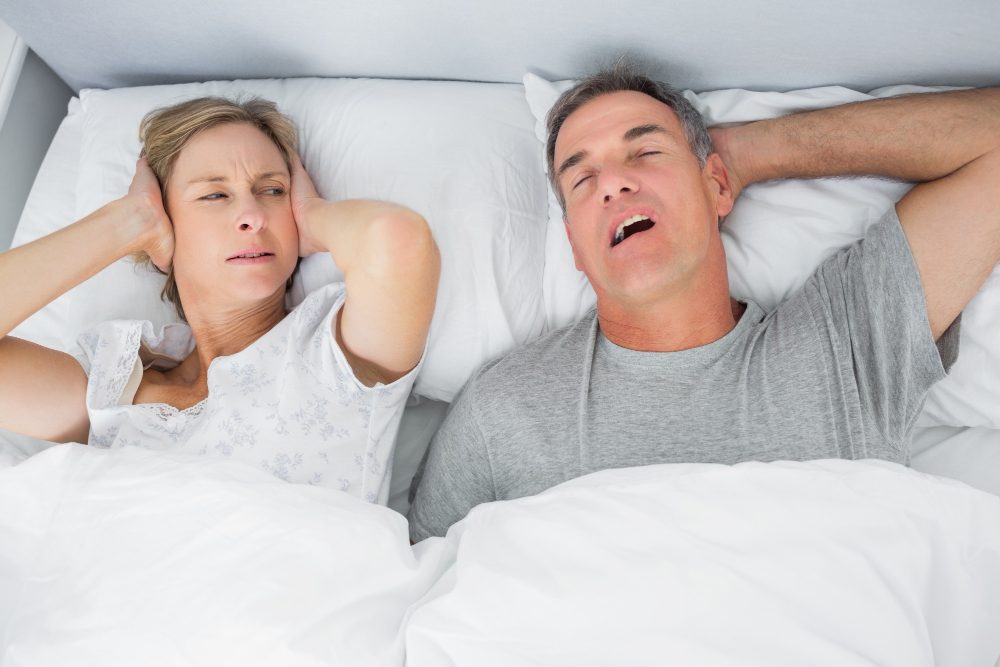The Link Between Sleep Apnea and Daytime Sleepiness
The Link Between Sleep Apnea and Daytime Sleepiness
Daytime sleepiness is more than just an inconvenience—it can significantly impact productivity, safety, and quality of life. One of the most common but often overlooked causes of excessive daytime sleepiness is sleep apnea, a sleep disorder that affects millions of people worldwide. This article explores how sleep apnea leads to daytime fatigue, the science behind the condition, and what you can do about it.
What Is Sleep Apnea?
Sleep apnea is a potentially serious sleep disorder characterized by repeated interruptions in breathing during sleep. These interruptions—known as apneas—can last from a few seconds to over a minute and may occur dozens or even hundreds of times each night. The most common form, obstructive sleep apnea (OSA), happens when the muscles in the throat relax excessively, causing airway blockage.
Because these apneas disrupt the normal sleep cycle, individuals with sleep apnea often wake up feeling unrefreshed—even after what seems like a full night’s rest.
How Sleep Apnea Disrupts Restorative Sleep
Sleep is divided into several stages, including light sleep, deep sleep, and REM (rapid eye movement) sleep. Deep and REM sleep stages are crucial for memory consolidation, physical recovery, and emotional processing. People with sleep apnea rarely reach or maintain these deeper stages due to frequent awakenings caused by breathing disruptions.
As a result, the body never fully rests, and this leads to daytime sleepiness, lack of energy, mood swings, and even impaired cognitive function.
Daytime Sleepiness: The Silent Consequence
One of the hallmark symptoms of sleep apnea is persistent daytime sleepiness. People with untreated sleep apnea often find themselves dozing off during meetings, while watching TV, or even while driving—posing serious safety risks. This level of fatigue cannot be remedied by a quick nap or a cup of coffee because the root of the problem lies in the quality of sleep, not the quantity.
In fact, many individuals don’t even realize they have sleep apnea; they only become aware of the problem when daytime drowsiness becomes chronic and unmanageable.
Sleep Apnea and Its Impact on Mental Clarity
Another major consequence of sleep apnea-induced sleep disruption is impaired concentration and memory problems. The brain relies on consistent, deep sleep to restore its ability to process information efficiently. With sleep apnea, cognitive function becomes compromised, leading to difficulties in focus, decision-making, and learning.
This is especially problematic for students, professionals, and anyone who needs to stay mentally sharp throughout the day.
Risk Factors and Who's at Risk
While sleep apnea can affect anyone, certain groups are at higher risk:
Overweight individuals
Men over 40
People with a family history of sleep apnea
Smokers
Those with nasal congestion or anatomical issues such as enlarged tonsils or a deviated septum
If you fall into any of these categories and experience daytime sleepiness, consider speaking with a healthcare provider about undergoing a sleep study.
Diagnosing Sleep Apnea
Diagnosing sleep apnea typically involves an overnight sleep study called polysomnography. This test monitors your breathing, oxygen levels, heart rate, and brain waves during sleep. For some, at-home sleep apnea tests may also be an option.
Proper diagnosis is the first step in managing daytime sleepiness and improving overall health.
Treating Sleep Apnea to Combat Daytime Fatigue
Effective treatment of sleep apnea can significantly reduce or eliminate daytime sleepiness. Common treatments include:
CPAP (Continuous Positive Airway Pressure): A machine that keeps airways open by delivering constant air pressure through a mask.
Lifestyle changes: Losing weight, avoiding alcohol before bed, and sleeping on your side.
Oral appliances: Custom-fitted devices worn during sleep to keep the airway open.
Surgical options: In cases where other treatments fail, surgery may be considered.
Consistent treatment not only improves sleep quality but also enhances energy levels, mood, and daily performance.
Why Addressing Sleep Apnea Matters
Ignoring sleep apnea doesn’t just lead to daytime sleepiness—it can contribute to more serious health issues such as high blood pressure, heart disease, stroke, and type 2 diabetes. The constant strain caused by low oxygen levels and poor-quality sleep affects virtually every system in the body.
Addressing sleep apnea early on improves not only how you sleep, but how you live.
Final Thoughts
There’s a direct and well-documented connection between sleep apnea and daytime sleepiness. If you find yourself battling fatigue despite a full night’s rest, it may be time to explore whether sleep apnea is the underlying cause. With proper diagnosis and treatment, you can regain control of your sleep—and your day.
Table of Content
- The Link Between Sleep Apnea and Daytime Sleepiness
- What Is Sleep Apnea?
- How Sleep Apnea Disrupts Restorative Sleep
- Daytime Sleepiness: The Silent Consequence
- Sleep Apnea and Its Impact on Mental Clarity
- Risk Factors and Who's at Risk
- Diagnosing Sleep Apnea
- Treating Sleep Apnea to Combat Daytime Fatigue
- Why Addressing Sleep Apnea Matters
- Final Thoughts





